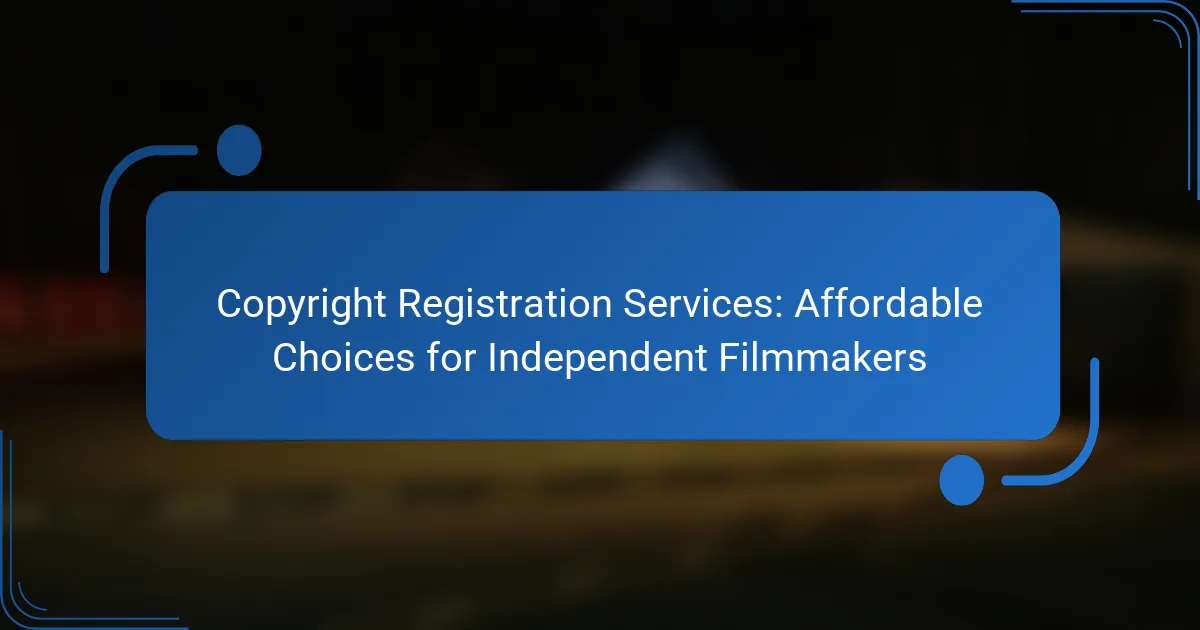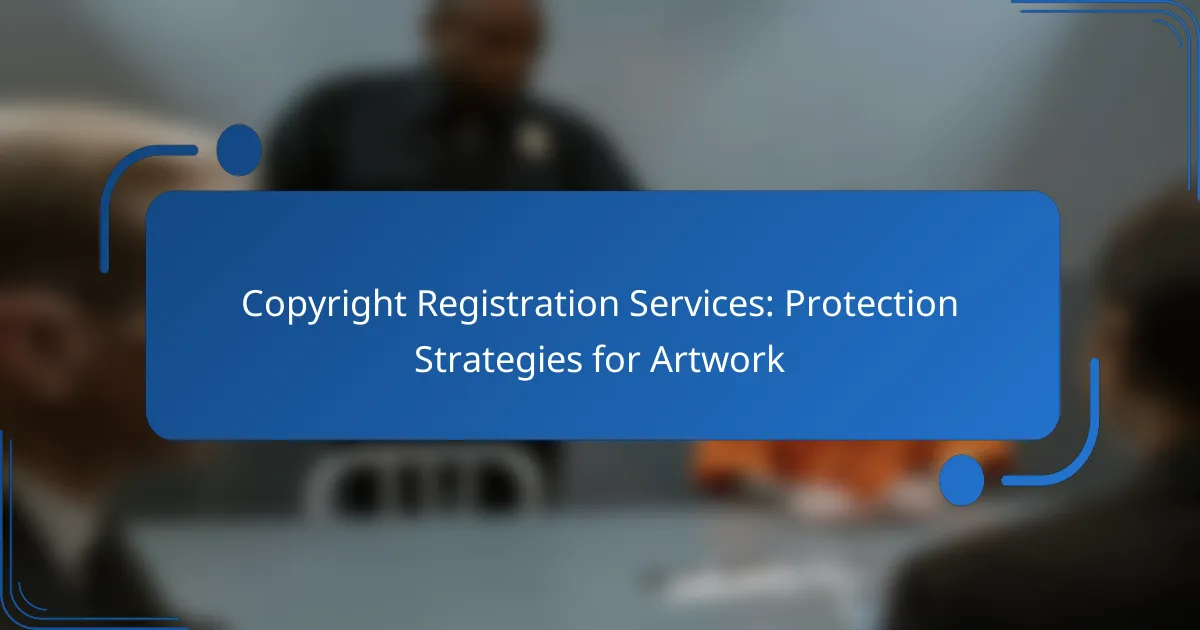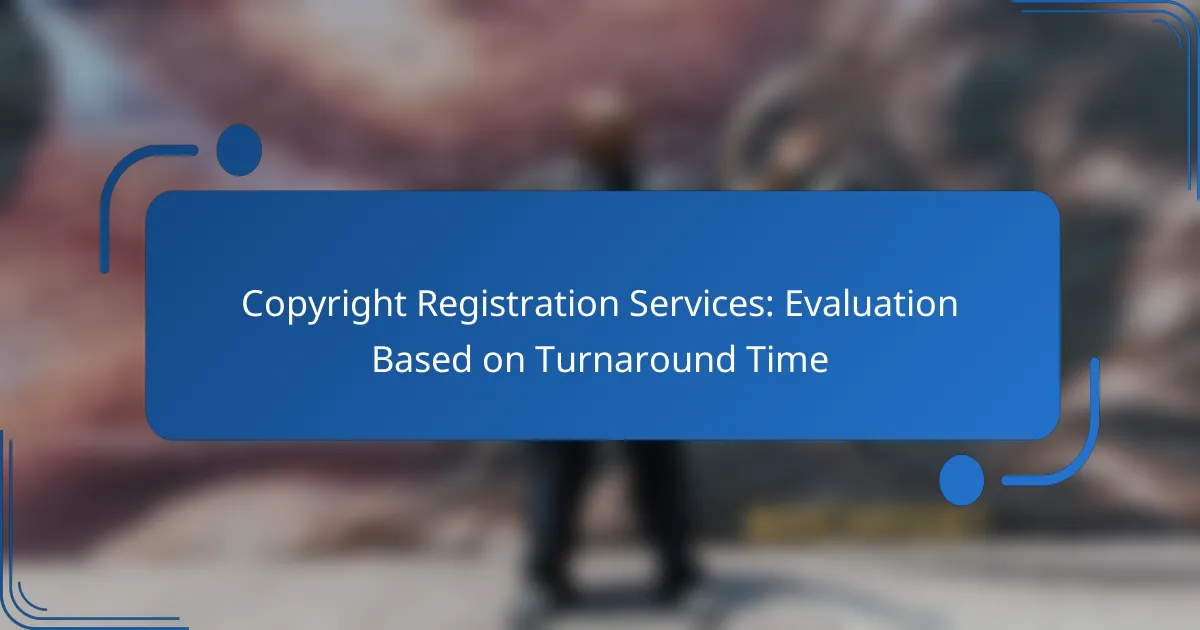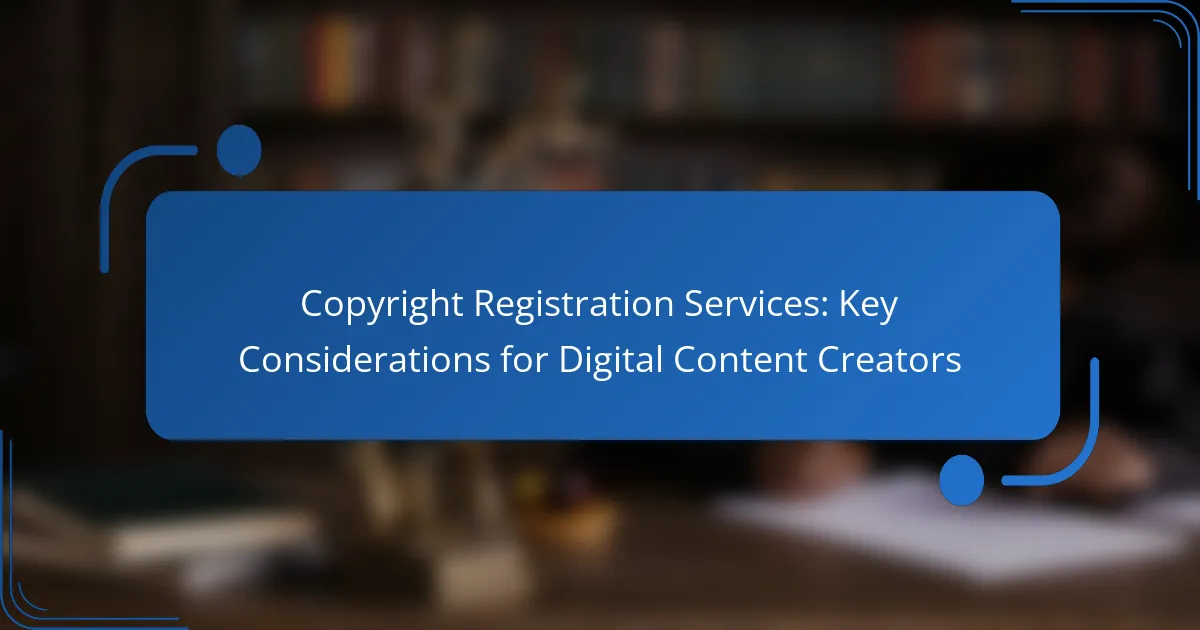Affordable copyright registration services are essential for independent filmmakers looking to protect their creative works without breaking the bank. These services simplify the registration process, making it more accessible for those with limited budgets while ensuring that their intellectual property is legally safeguarded. By choosing the right service, filmmakers can enhance their credibility and potentially increase the value of their projects.
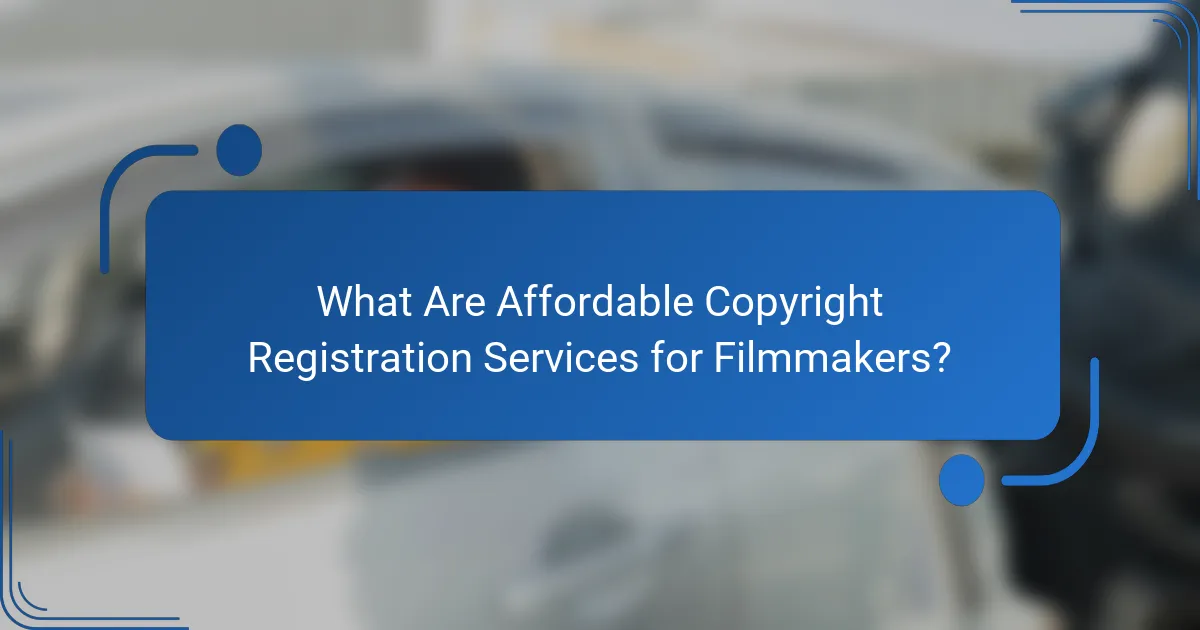
What Are Affordable Copyright Registration Services for Filmmakers?
Affordable copyright registration services for filmmakers provide cost-effective options to protect their creative works. These services streamline the registration process, making it accessible for independent filmmakers who may have limited budgets.
FilmFreeway Copyright Registration
FilmFreeway offers a straightforward copyright registration service specifically designed for filmmakers. By using their platform, creators can register their films quickly while also submitting to various film festivals, enhancing their visibility.
The registration process is user-friendly, typically taking just a few minutes to complete. Fees are generally in the low tens of USD, making it a budget-friendly choice for independent filmmakers.
Copyright.gov Online Registration
The U.S. Copyright Office provides an online registration service that allows filmmakers to register their works directly through their website. This official service is often considered the most reliable method for copyright registration.
Filmmakers can complete the registration in about 30 minutes, with fees ranging from approximately $45 to $65, depending on the type of work. This option is ideal for those seeking legal assurance and formal recognition of their copyright.
LegalZoom Copyright Services
LegalZoom offers copyright registration services tailored for filmmakers, providing a blend of legal expertise and convenience. Their platform guides users through the registration process, ensuring that all necessary information is accurately submitted.
While LegalZoom’s services may come at a higher price point, typically around $149 to $200, they include additional legal support and resources that can be beneficial for filmmakers unfamiliar with copyright law. This option is suitable for those who want comprehensive assistance throughout the registration process.
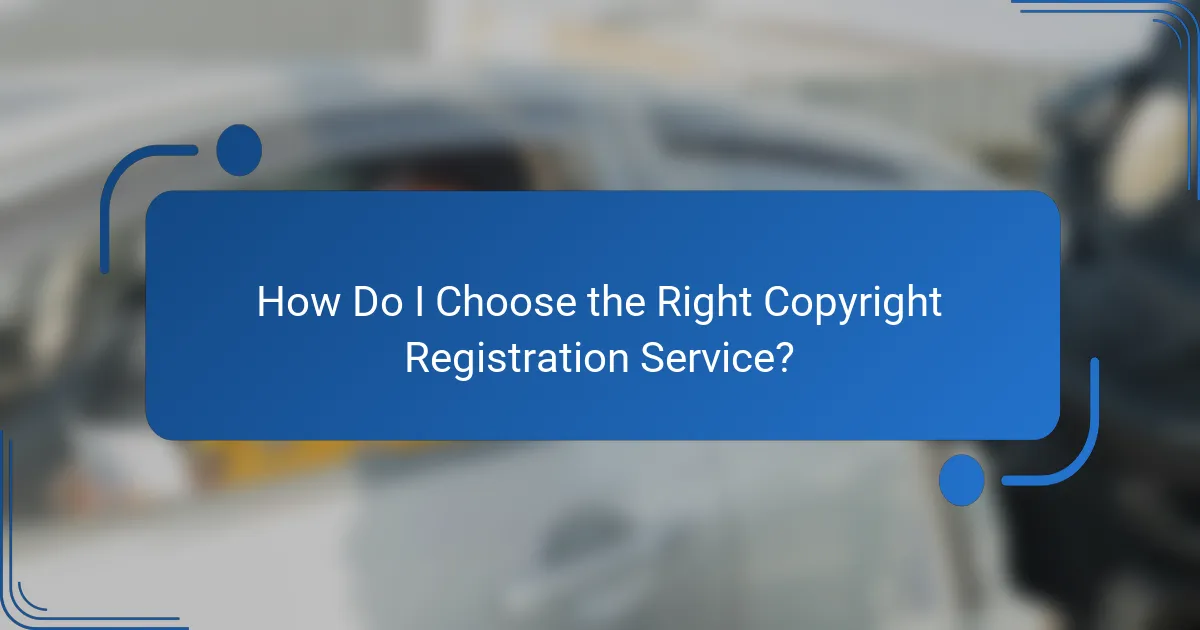
How Do I Choose the Right Copyright Registration Service?
Choosing the right copyright registration service involves evaluating cost, features, and the specific needs of your project. Independent filmmakers should consider services that offer a balance of affordability and comprehensive support to ensure their creative works are adequately protected.
Cost Comparison of Services
The cost of copyright registration services can vary significantly. Basic registration services typically range from $35 to $150, depending on the provider and the complexity of your work. Some services may offer package deals that include additional features, which can be more economical for filmmakers planning multiple registrations.
When comparing costs, consider not only the registration fee but also any hidden charges, such as processing fees or annual maintenance costs. Look for services that provide clear pricing structures and avoid those with ambiguous or escalating fees.
Service Features and Benefits
Different copyright registration services offer various features that can enhance your experience. Key benefits to look for include online filing, expedited processing, and access to legal advice. Some services may also provide additional resources, such as templates for copyright notices and educational materials about copyright law.
It’s essential to assess how these features align with your needs as an independent filmmaker. For instance, if you require quick registration for an upcoming project, prioritize services that offer expedited options. Additionally, consider whether the service provides ongoing support or updates regarding copyright laws that could affect your work.
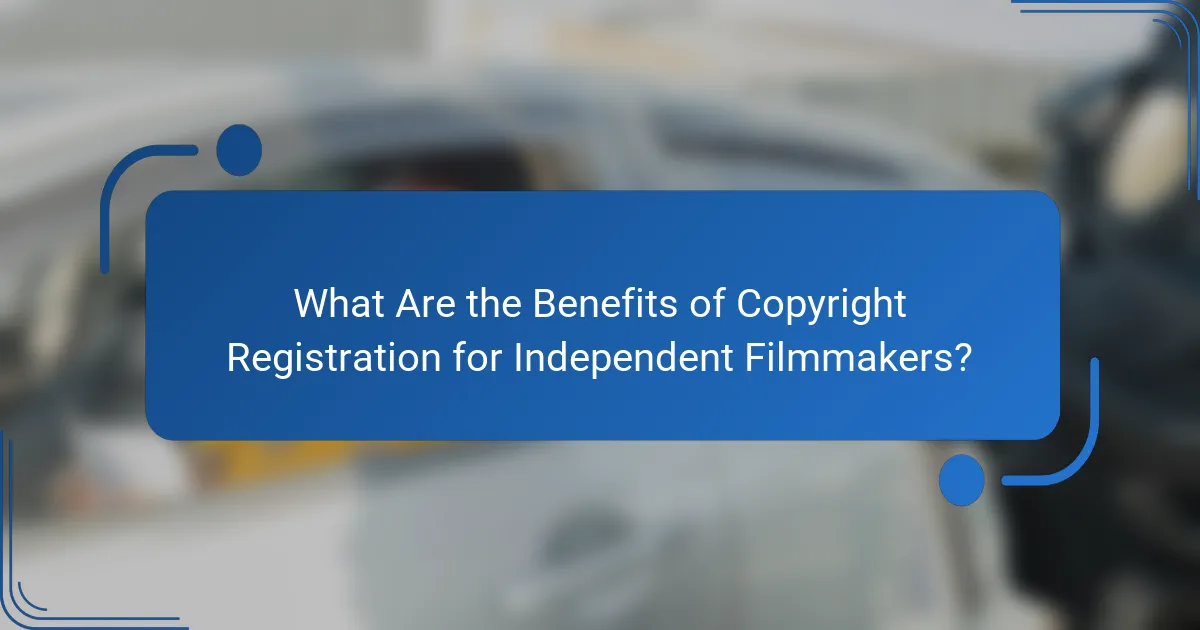
What Are the Benefits of Copyright Registration for Independent Filmmakers?
Copyright registration offers independent filmmakers essential legal protections and enhances their credibility in the industry. By officially registering their creative works, filmmakers can safeguard their intellectual property and potentially increase the value of their projects.
Legal Protection for Creative Works
Registering a film with copyright authorities provides legal protection against unauthorized use, reproduction, or distribution. This means that if someone infringes on a filmmaker’s rights, they have a stronger legal standing to pursue action against the infringer.
In the United States, for example, registration is a prerequisite for filing a lawsuit for copyright infringement. It also allows filmmakers to claim statutory damages and attorney fees, which can be significant in legal disputes.
Increased Credibility and Value
Having a registered copyright can enhance a filmmaker’s credibility in the eyes of investors, distributors, and collaborators. It signals professionalism and a commitment to protecting one’s creative output, which can make projects more appealing to potential partners.
Moreover, registered works can often be valued higher in negotiations, as they demonstrate a clear ownership and protection of intellectual property. This can be particularly beneficial when seeking funding or distribution deals, as it assures stakeholders of the filmmaker’s rights to the content.
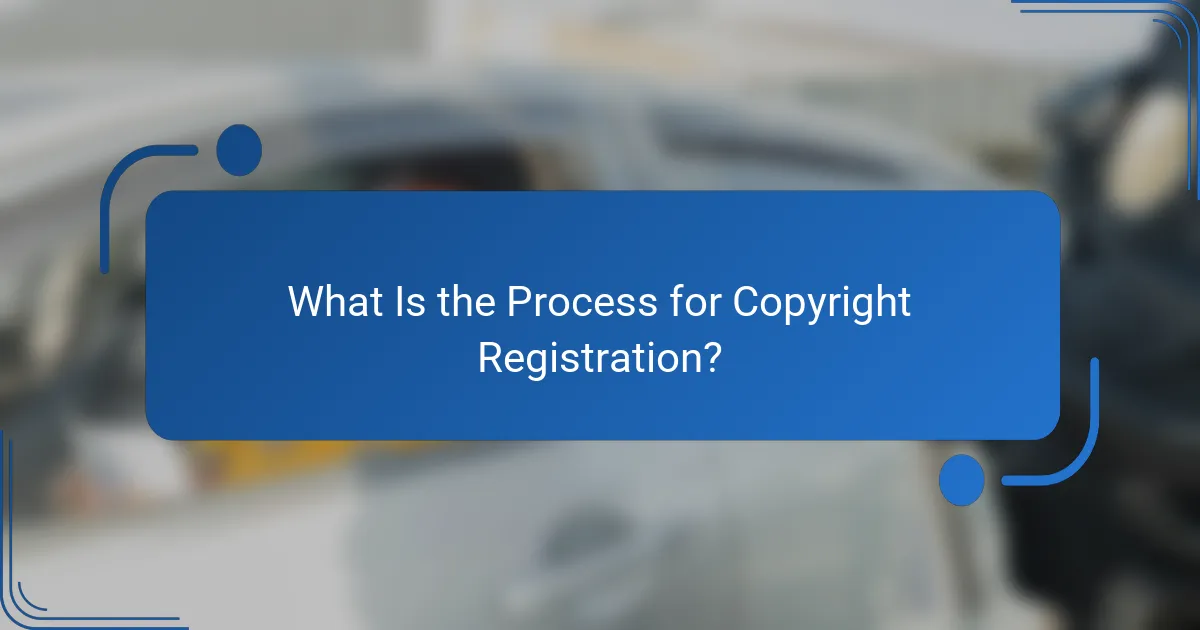
What Is the Process for Copyright Registration?
The copyright registration process involves several key steps that independent filmmakers must follow to protect their creative works. This process typically includes preparing the work, completing an application, and submitting the required payment.
Step 1: Prepare Your Work
Before registering your copyright, ensure that your work is complete and ready for submission. This includes finalizing scripts, films, or any other creative content you wish to protect. Keep in mind that only original works can be registered.
Gather any necessary documentation that proves your authorship, such as drafts, notes, or production materials. This evidence can be crucial if you need to defend your copyright in the future.
Step 2: Complete the Application
To register your copyright, you must fill out an application form, which can typically be done online through the U.S. Copyright Office or the relevant authority in your country. The form will require details about the work, including its title, creation date, and the author’s information.
Be thorough and accurate when completing the application, as errors can lead to delays or rejections. Double-check all entries to ensure that they reflect your work correctly.
Step 3: Submit Payment
After completing the application, you will need to submit the required fee for copyright registration. In the U.S., this fee can vary depending on the type of work and the method of submission, typically ranging from around $35 to $85.
Make your payment through the designated online portal, and keep a record of the transaction. This receipt will serve as proof of your application and payment in case of any disputes or inquiries.
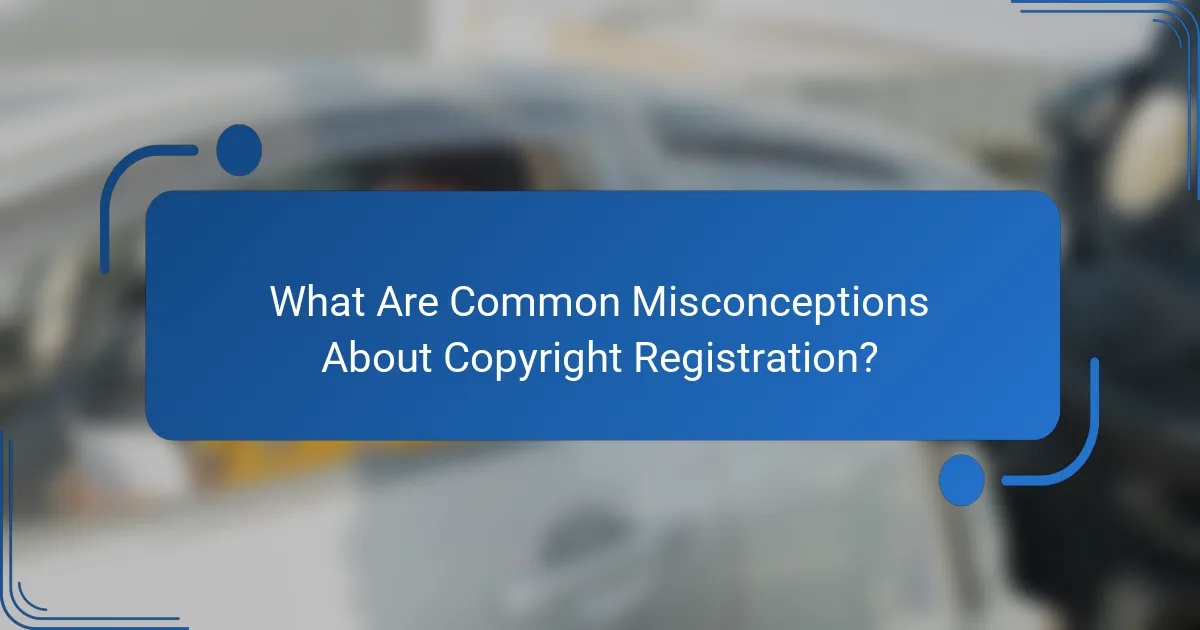
What Are Common Misconceptions About Copyright Registration?
Many independent filmmakers hold misconceptions about copyright registration that can impact their creative work. Understanding these myths is crucial for protecting intellectual property effectively.
Copyright Registration Is Not Mandatory
Copyright registration is not a requirement for copyright protection; your work is automatically protected upon creation. However, registering your work with the U.S. Copyright Office or equivalent in other countries can provide legal advantages, such as the ability to sue for damages in court.
For independent filmmakers, this means that while you can claim rights without registration, doing so can strengthen your position if disputes arise. Consider registration as a proactive step rather than a necessity.
Registration Does Not Guarantee Infringement Protection
While copyright registration provides a public record of your work, it does not guarantee that your work will never be infringed upon. Even registered works can face unauthorized use, and enforcement often requires additional legal action.
Independent filmmakers should be aware that registration helps establish ownership and can facilitate legal recourse, but it does not eliminate the risk of infringement. Regularly monitoring the use of your work and being prepared to act if necessary is essential for effective protection.
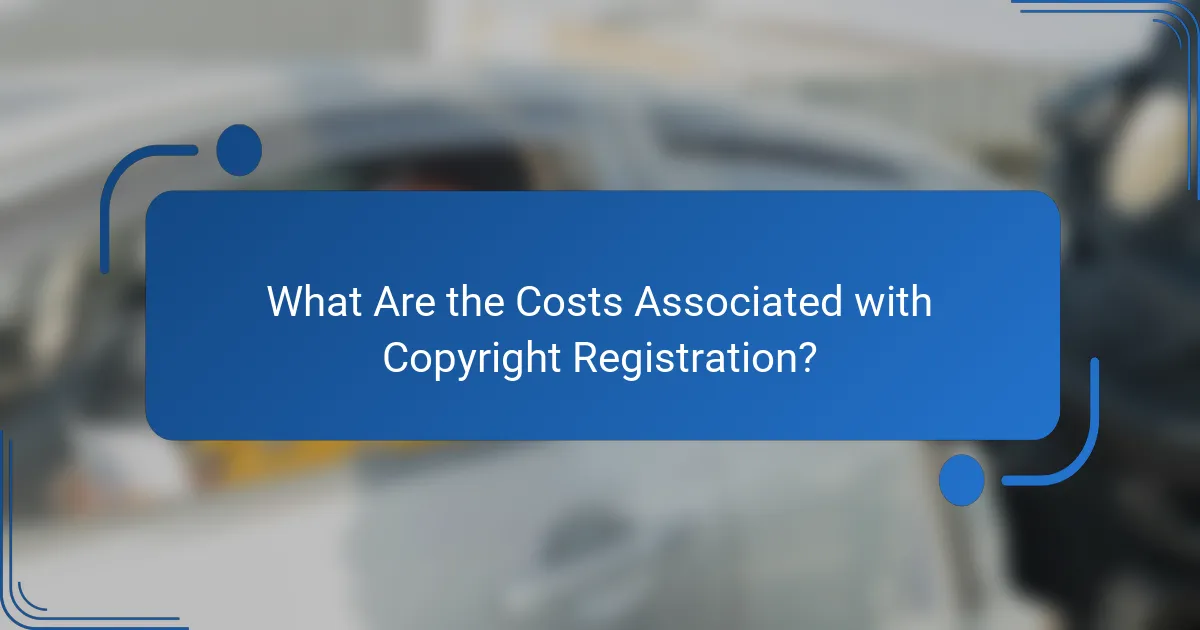
What Are the Costs Associated with Copyright Registration?
The costs associated with copyright registration can vary based on the method of registration and any additional services required. Generally, independent filmmakers should expect to pay a combination of standard registration fees and potential legal assistance costs.
Standard Fees for Online Registration
The standard fees for online copyright registration in the United States typically range from $35 to $55 for a single work. This fee may increase if you choose to register multiple works simultaneously or if you opt for additional services, such as expedited processing.
For independent filmmakers, using the online registration system is often the most cost-effective option. It allows for quicker processing times and lower fees compared to paper applications, which can cost up to $125.
Additional Costs for Legal Assistance
If you choose to hire a lawyer for copyright registration, expect to pay additional fees that can range from a few hundred to several thousand dollars, depending on the complexity of your project. Legal assistance can be beneficial for navigating intricate copyright issues or if you plan to register multiple works.
When considering legal help, weigh the potential benefits against the costs. For straightforward projects, self-registration may suffice, while more complex cases could justify hiring a professional. Always clarify fee structures upfront to avoid unexpected expenses.
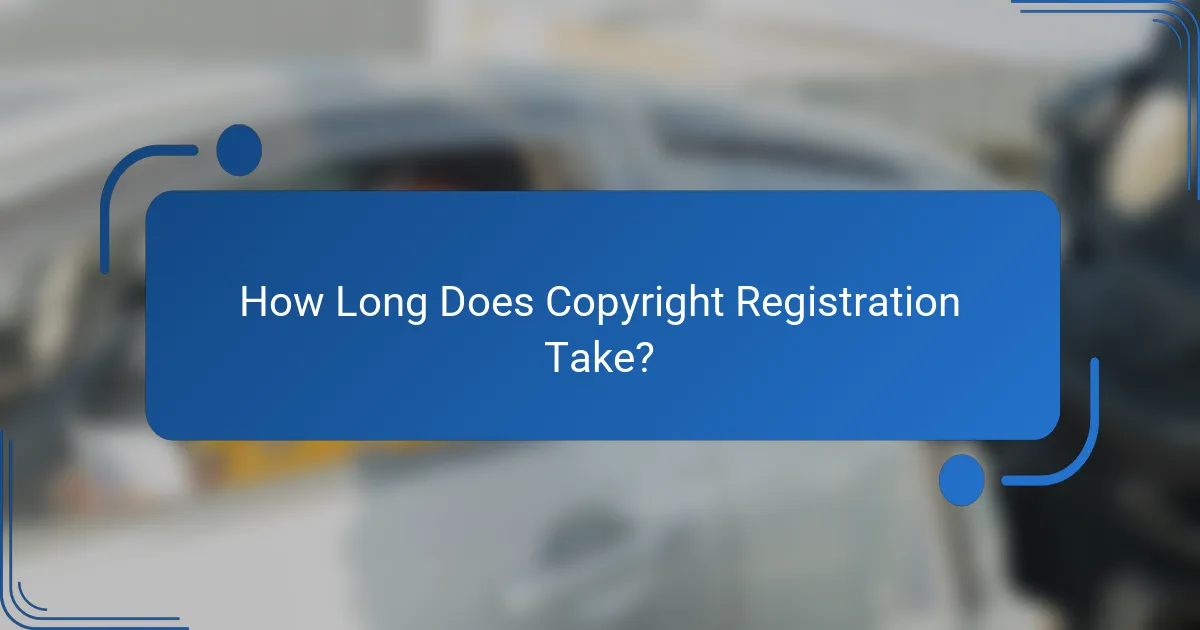
How Long Does Copyright Registration Take?
Copyright registration typically takes several months, depending on the method of application and the workload of the copyright office. Independent filmmakers should anticipate processing times that can vary based on whether they file online or via mail.
Typical Processing Times
For online applications, copyright registration usually takes around three to six months. This expedited process is generally faster than submitting a paper application, which can take six months to a year or more.
Factors influencing processing times include the volume of applications received by the copyright office and the complexity of the submitted works. Independent filmmakers should plan accordingly, especially if they need registration for upcoming projects or funding opportunities.
To avoid delays, ensure that all submitted materials are complete and accurate. Common pitfalls include missing information or incorrect forms, which can extend the registration timeline significantly.
